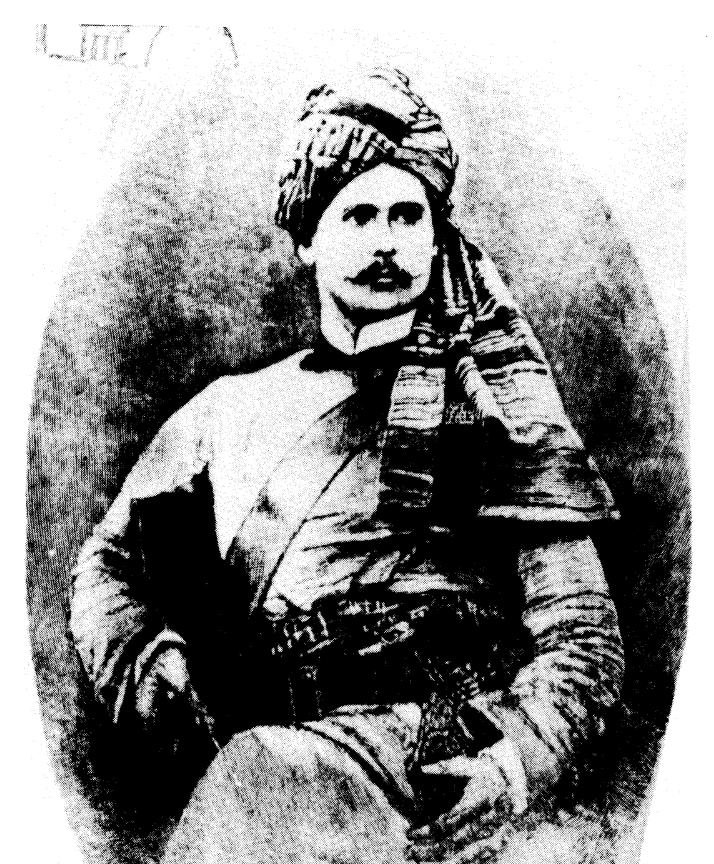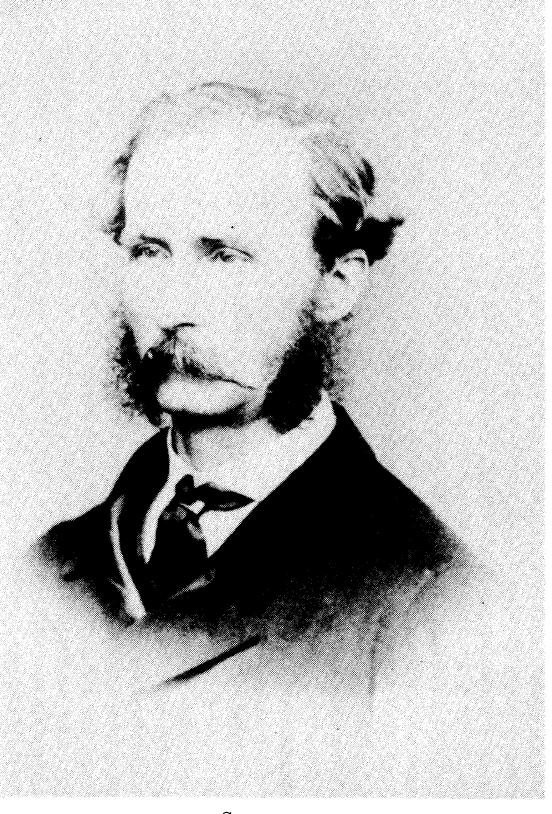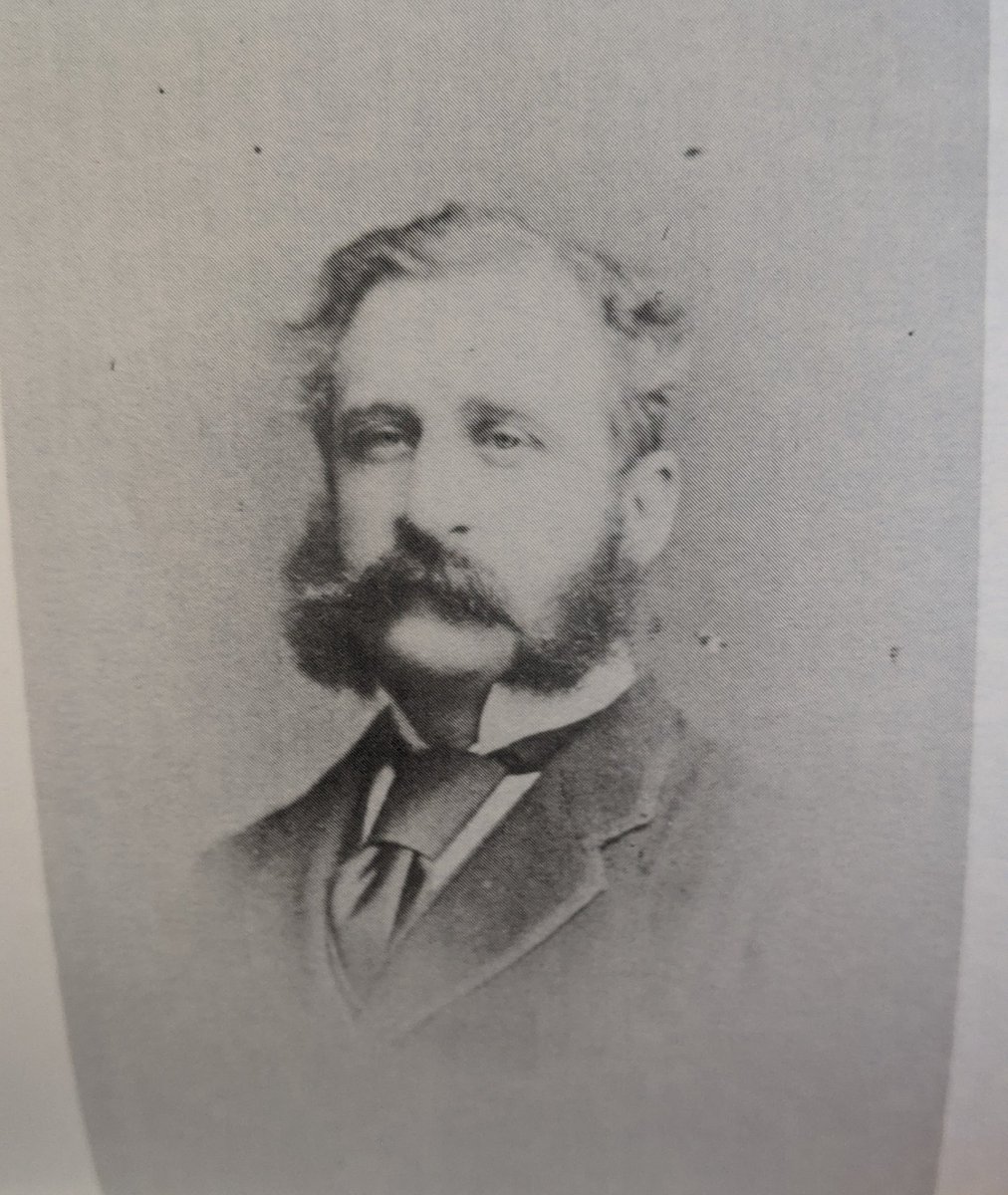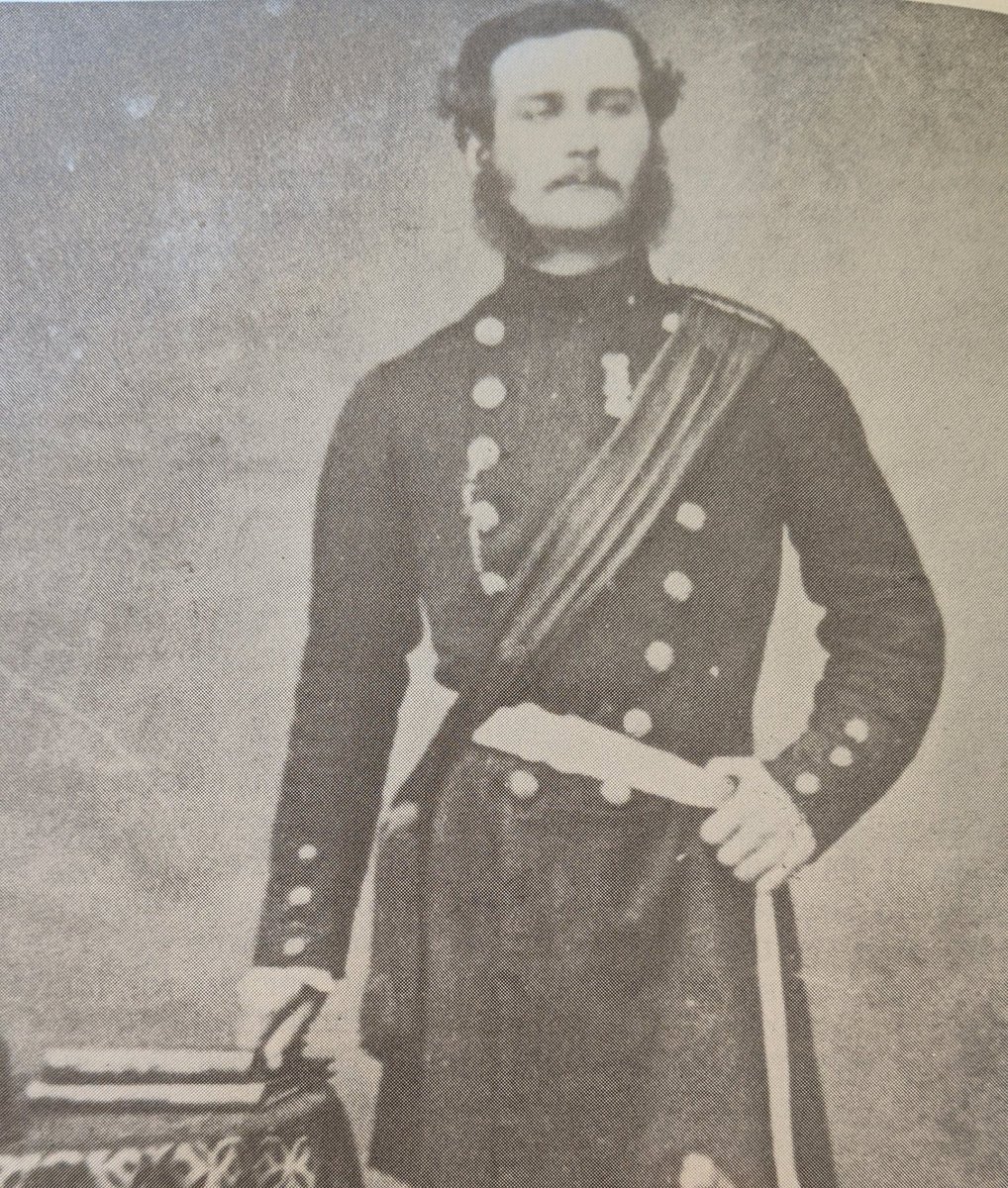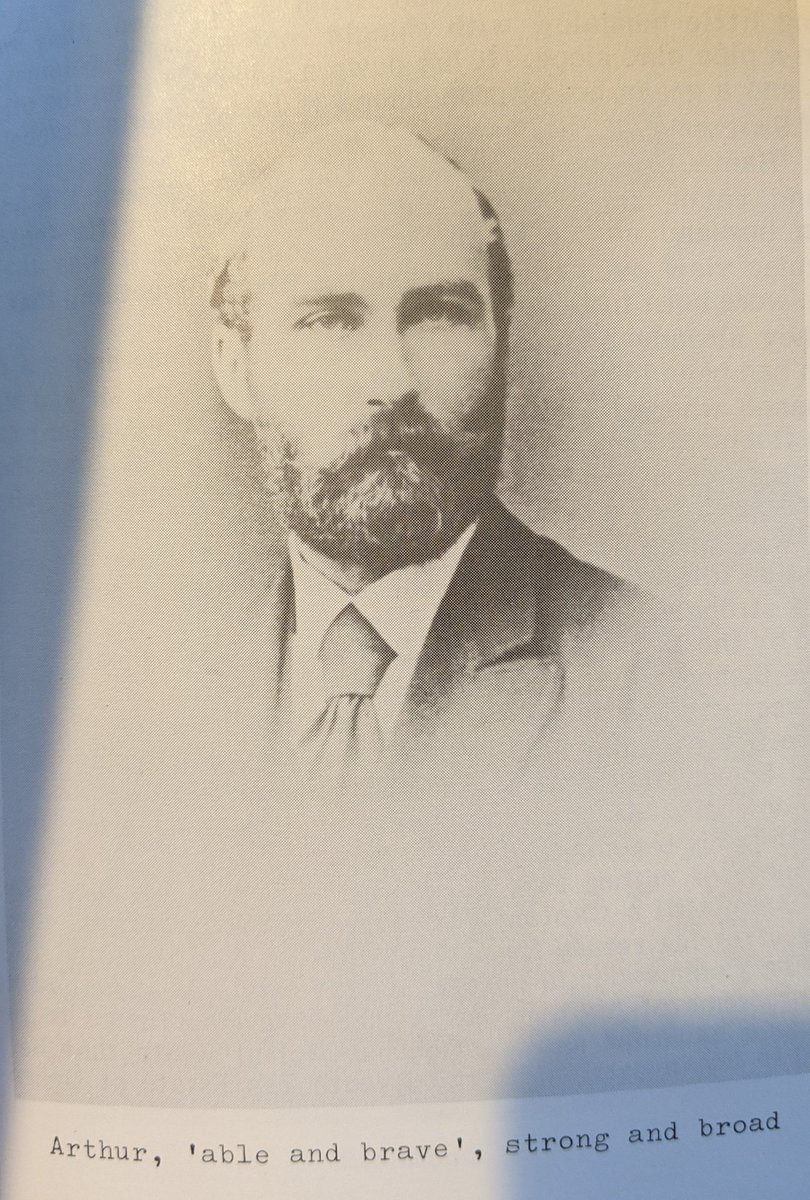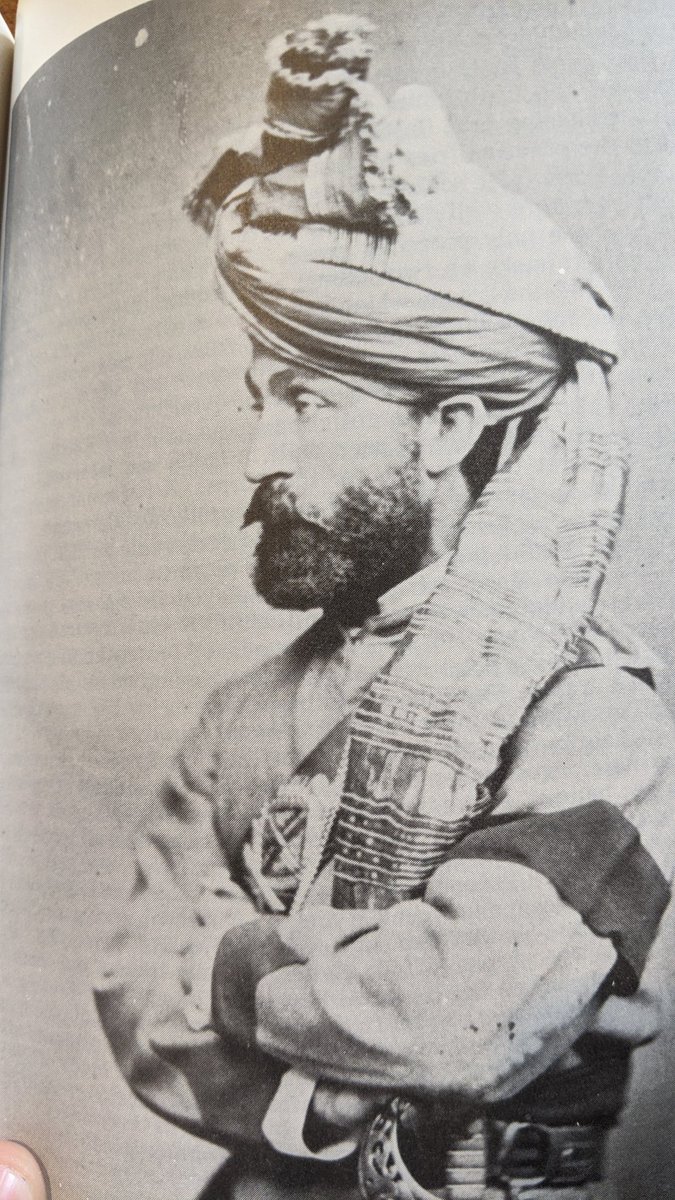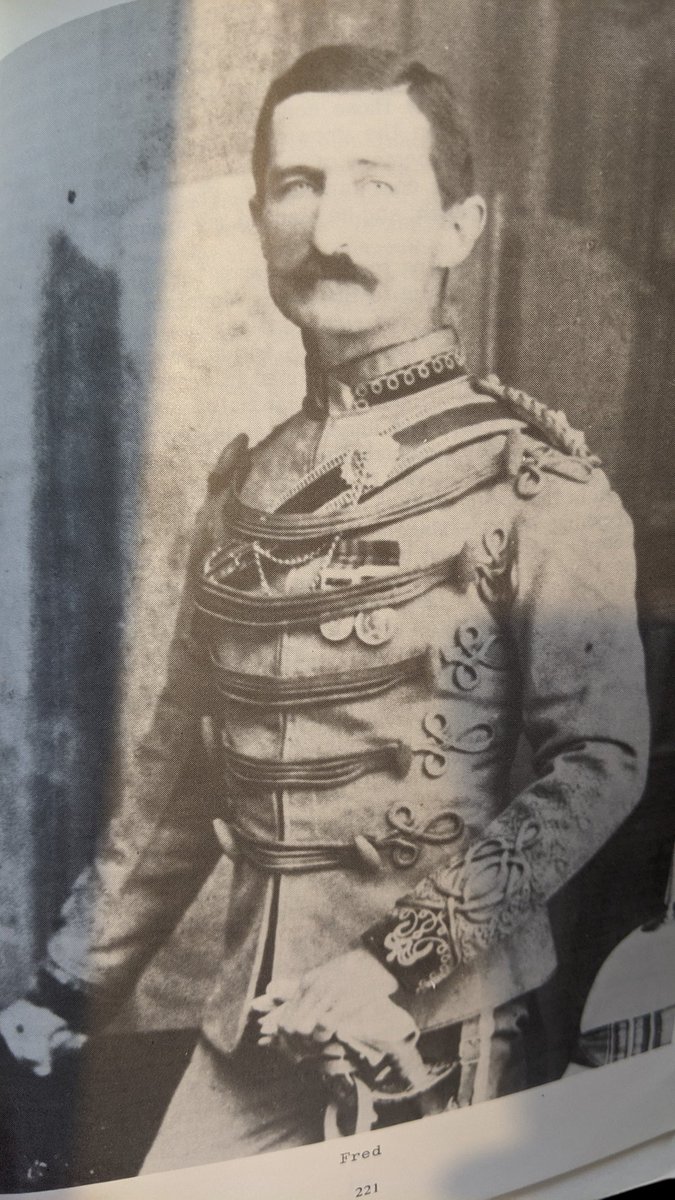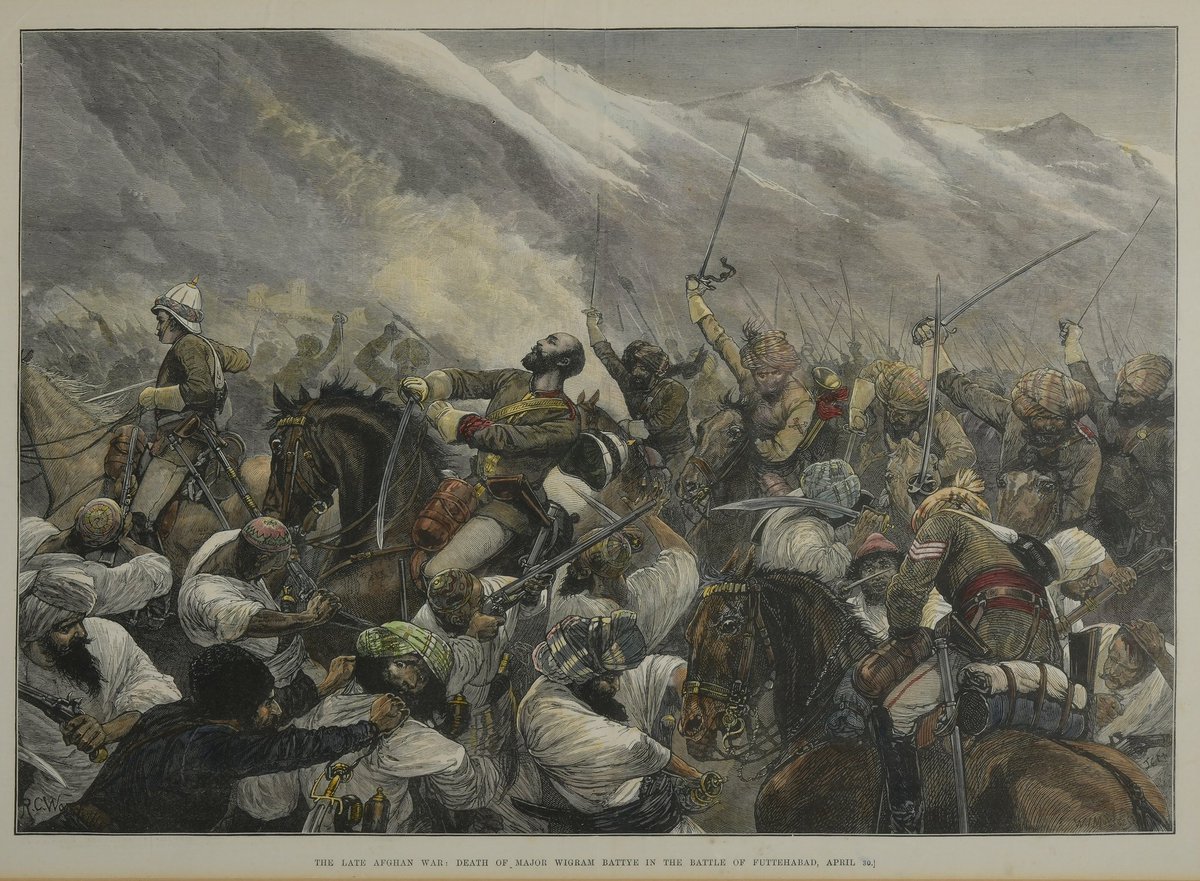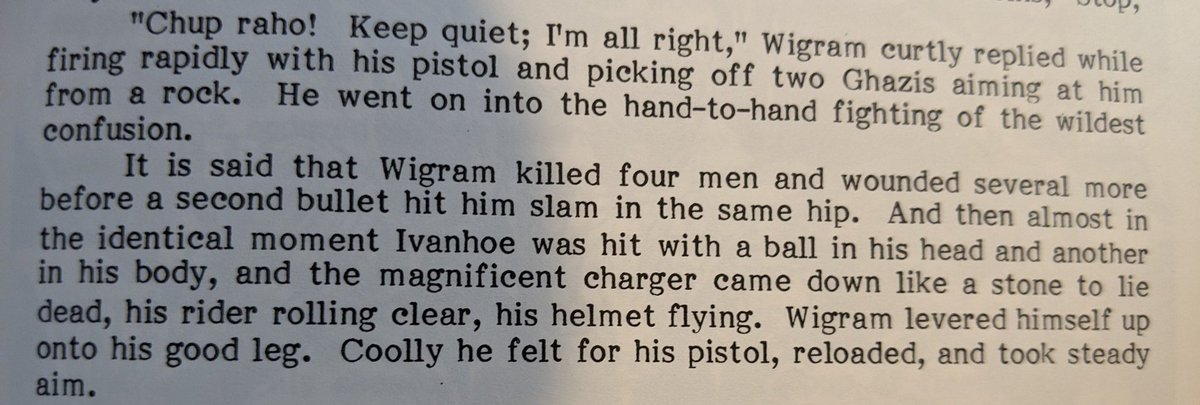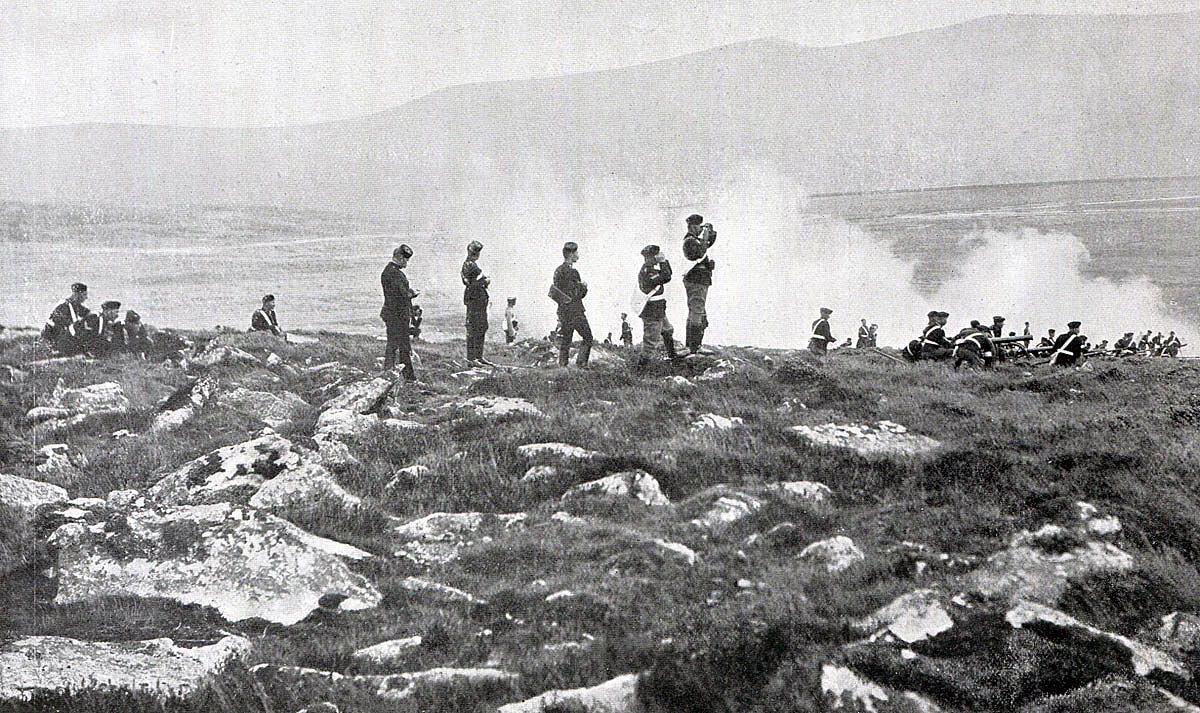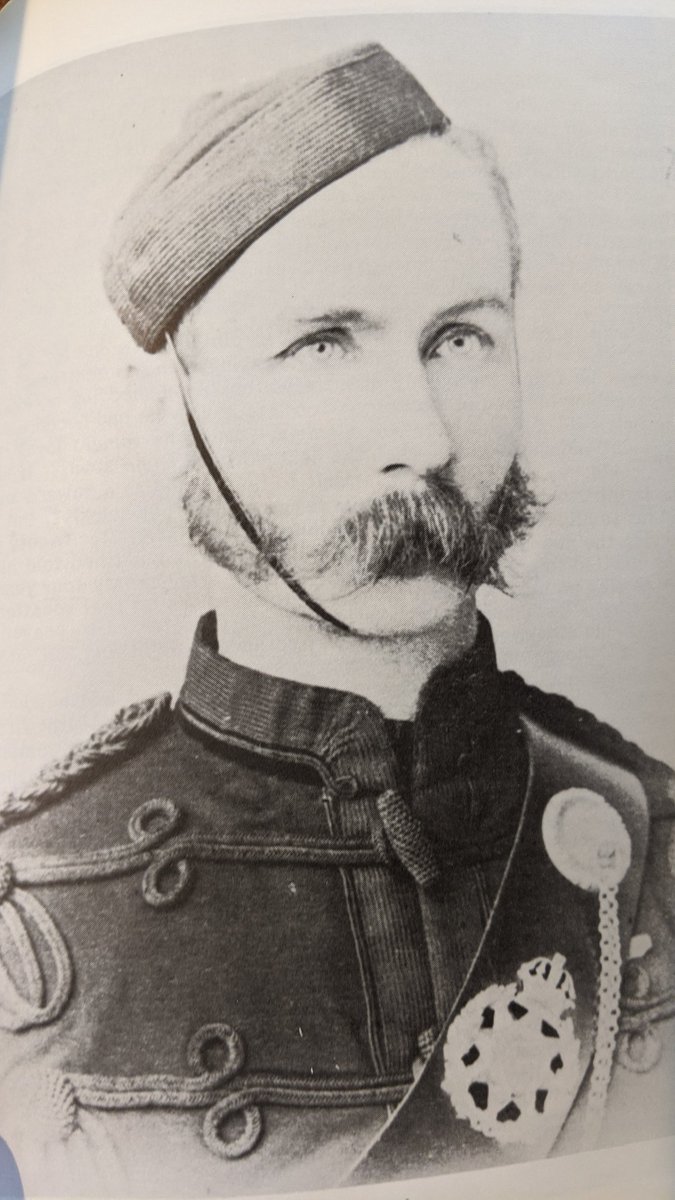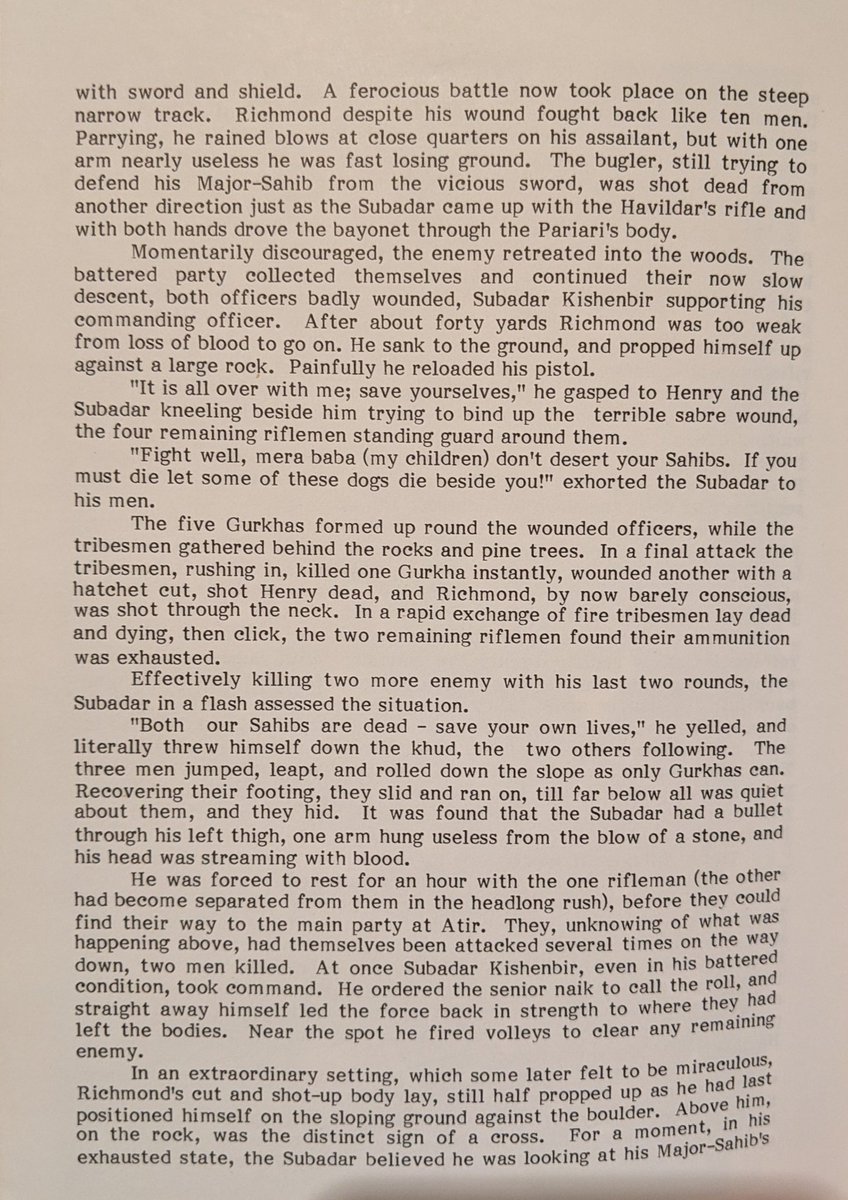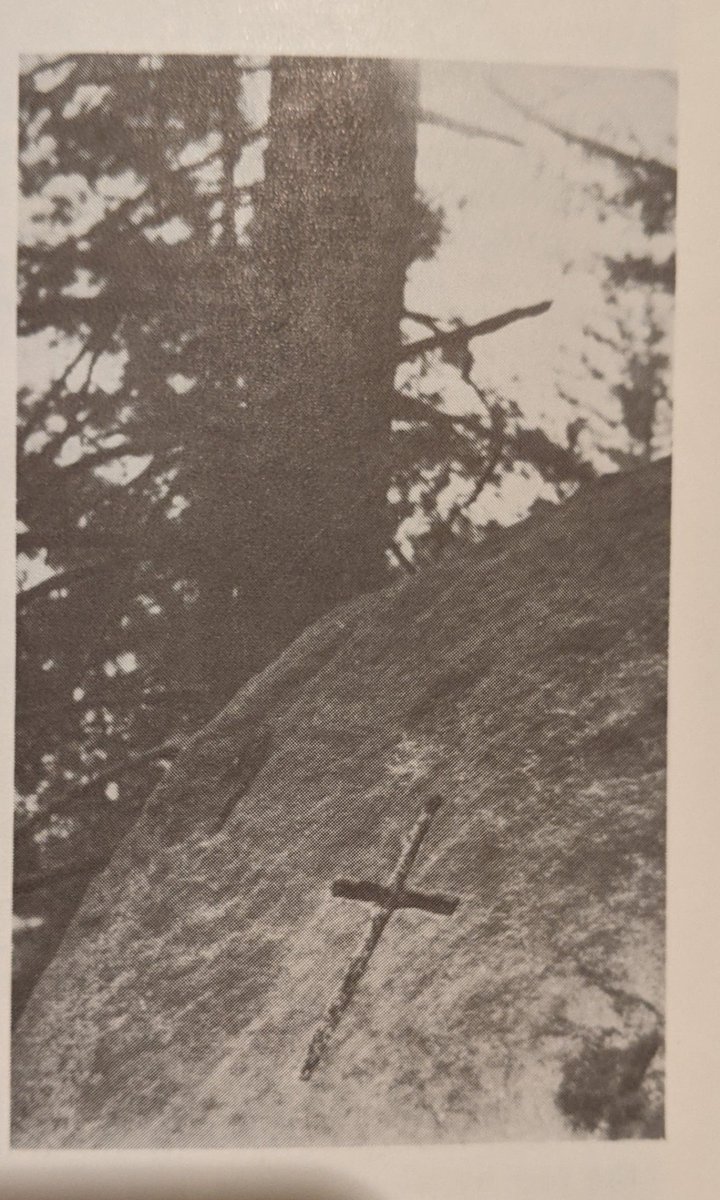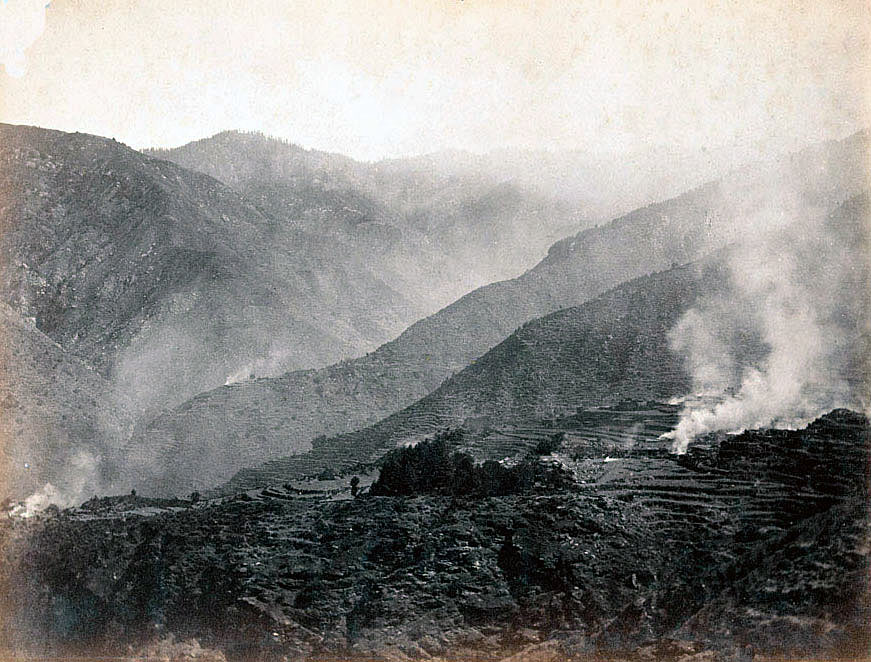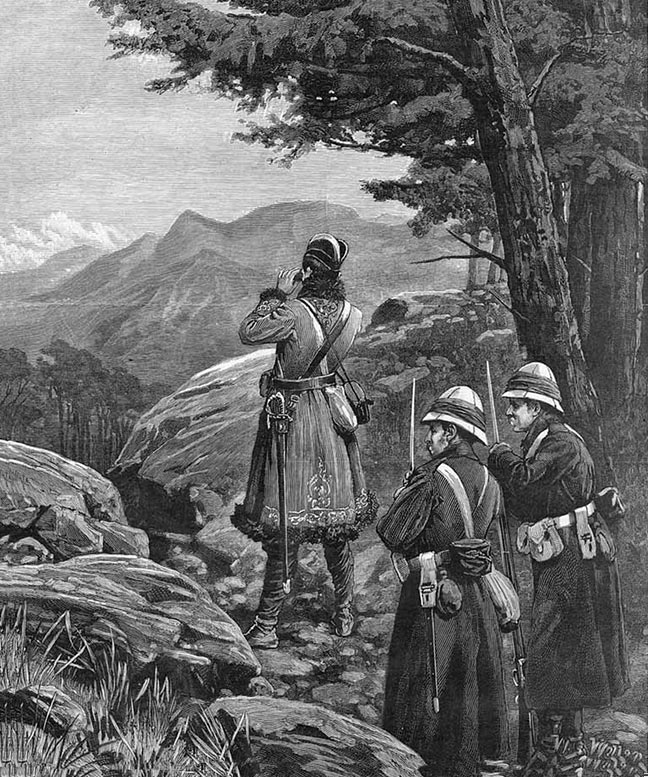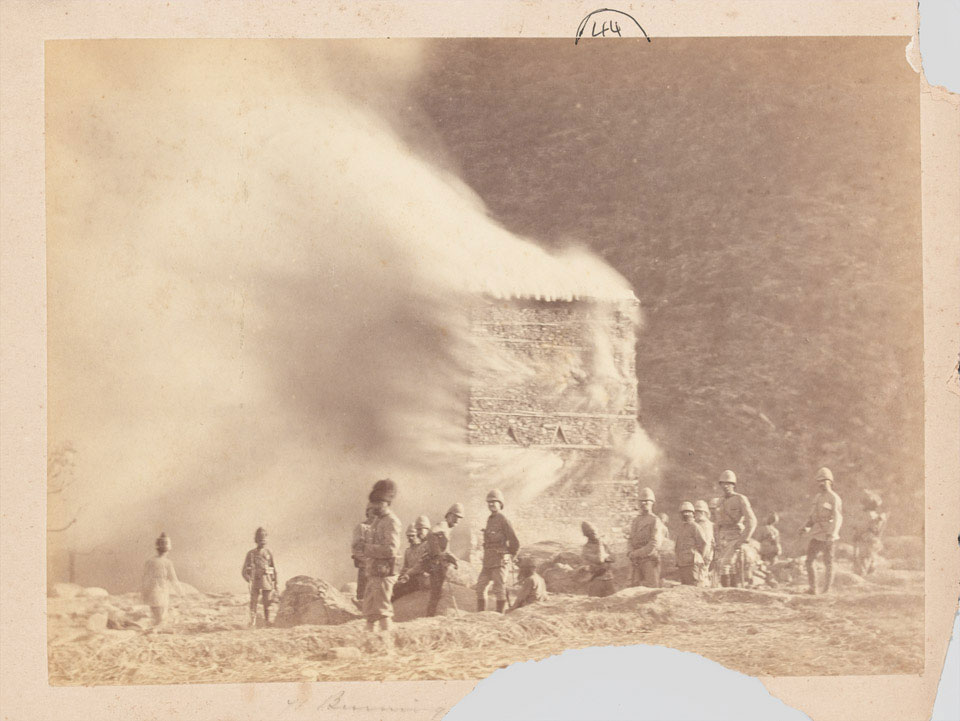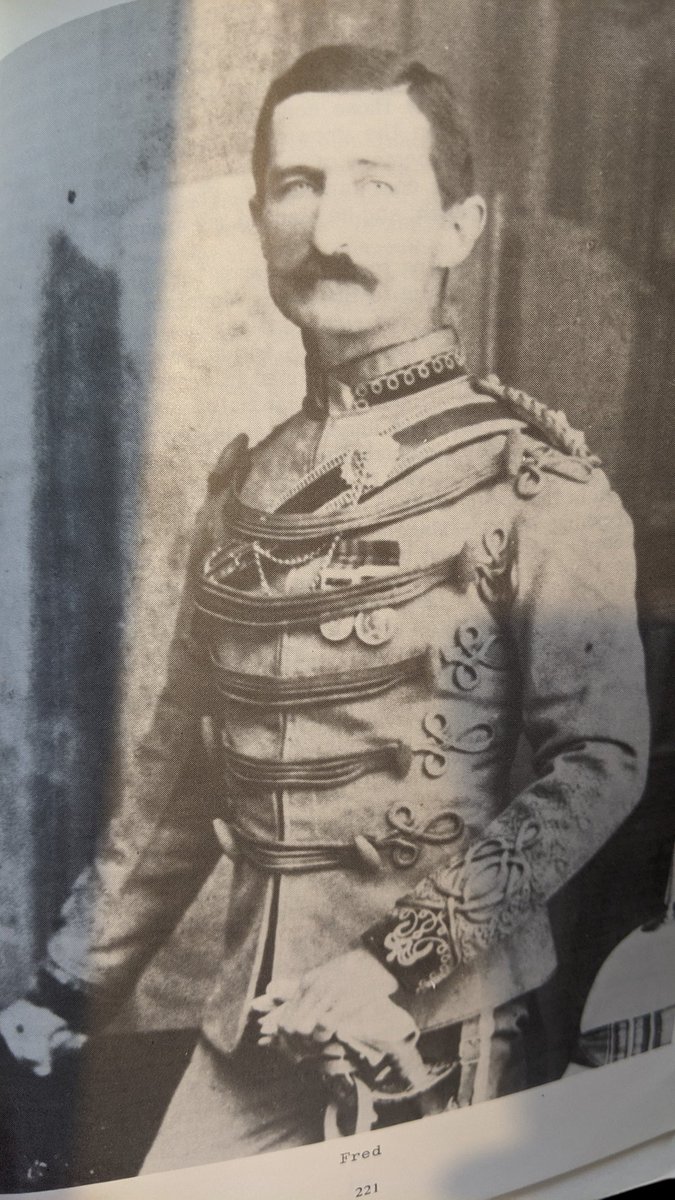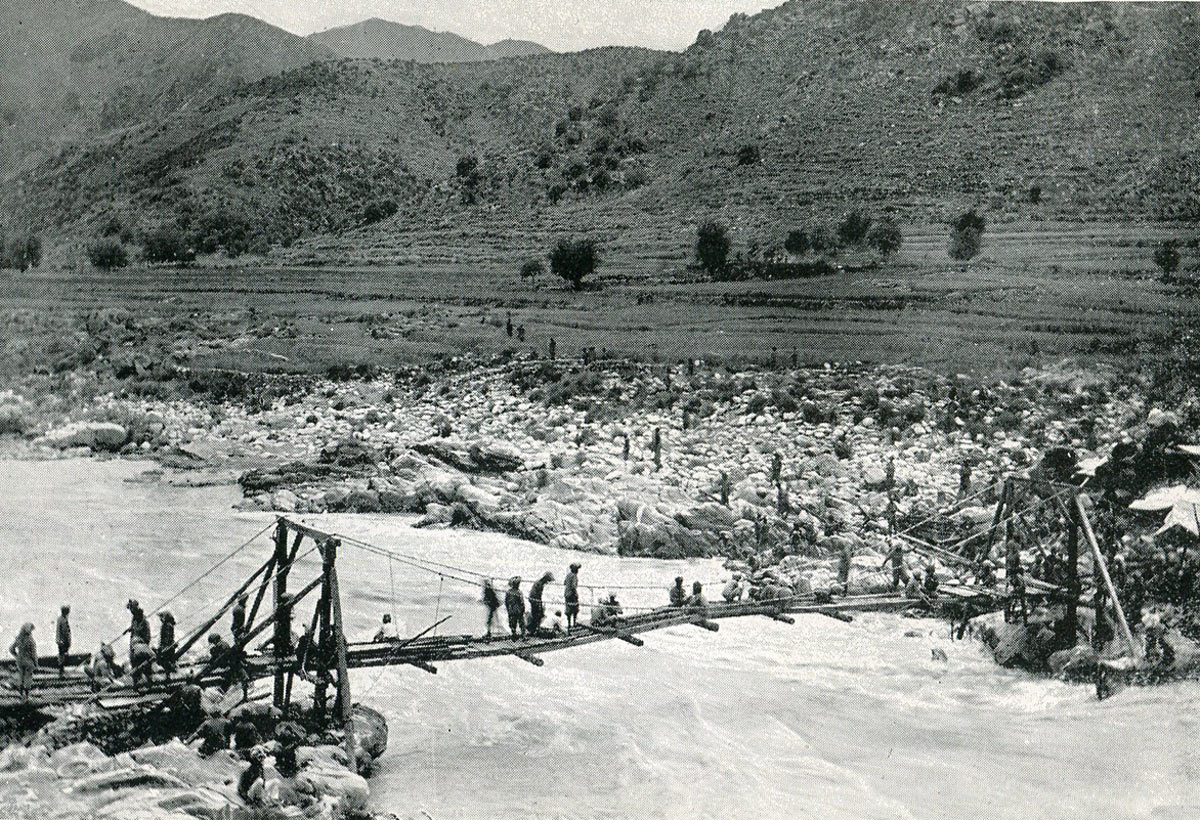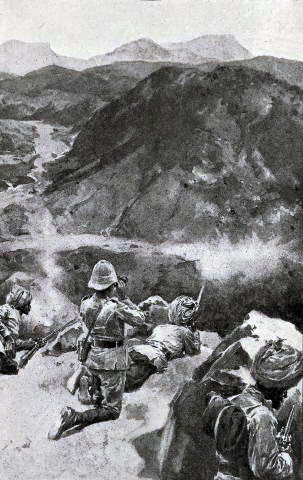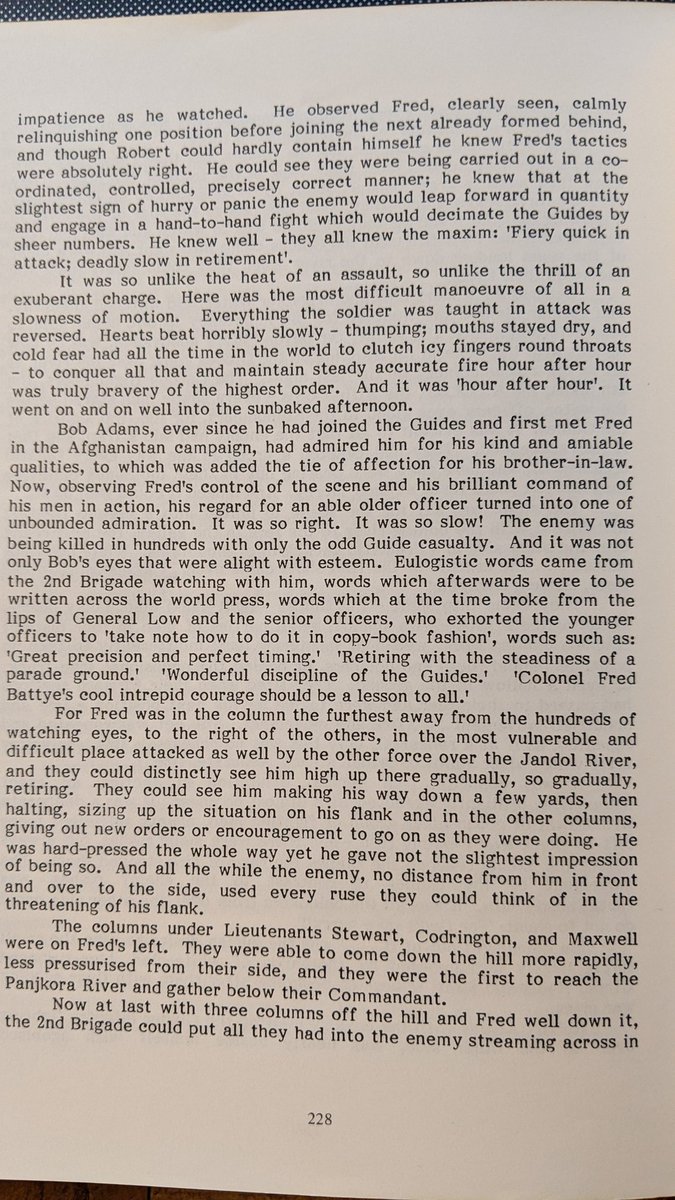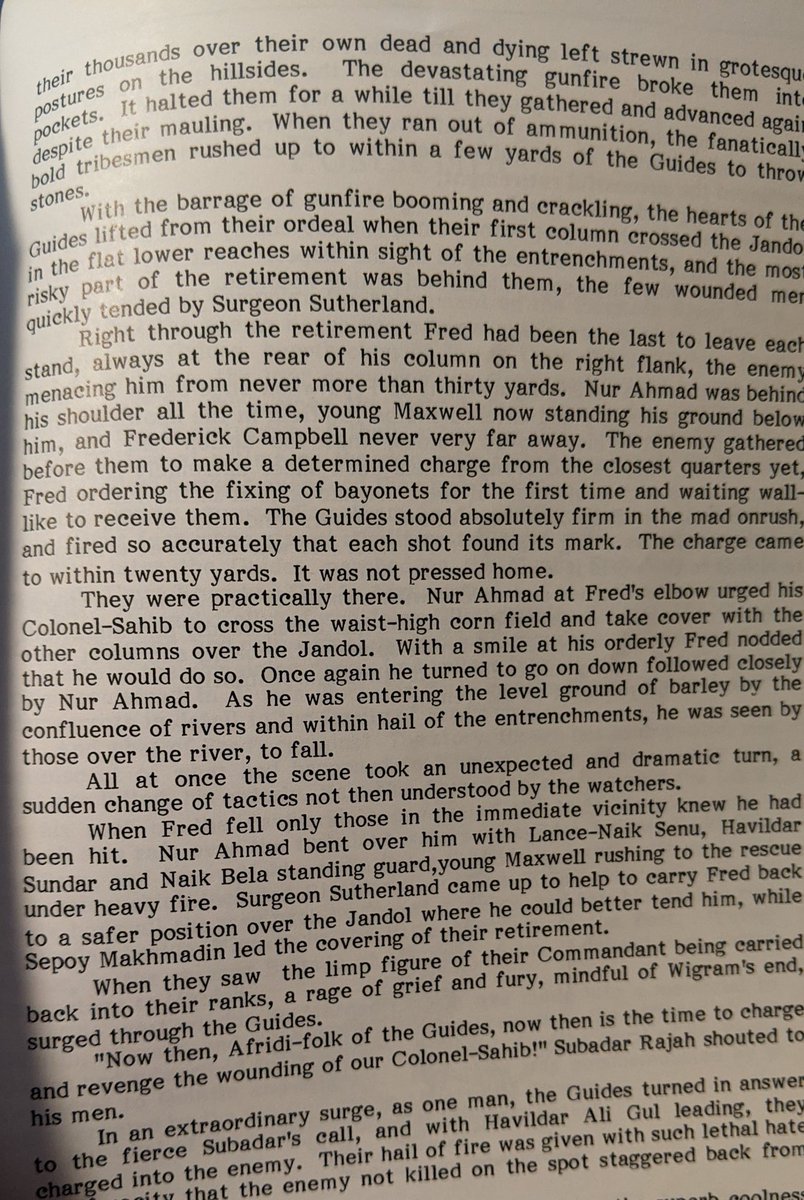Dulce et decorum est pro patria mori. These were the last words of Quintin Battye after he was shot while leading the Corps of Guides in a charge against a mutineer sortie at Delhi. With a priest by his side he spoke the illustrious words and left this world, leaving 9 brothers
Quintin was the second son of George Battye, a civil servant in Bengal employed by the East India Company. He would have 10 sons, and one daughter, all born in India and each one would serve the in the Indian military. A further 6 of his sons would fight in the mutiny who were;
Major-General George Money (1829-1912), Major-General Henry Doveton (1833-1882), Major Wynard (1835-1882), Lieutenant-Colonel Montagu (1836-1929), Captain Charles (1838-1918) and finally Major-General Arthur (1839-1909). Six of the brothers were reunited during the mutiny
during the final relief of Lucknow where they converged on the city in columns fighting through countryside infested with mutineers fighting dozens of running battles. George, Henry and Arthur advanced from Delhi while Monty, Charles and Wynard advanced from Bihar.
The brothers all took part in clearing the city and all were engaged in heavy hand to hand fighting, they were all seasoned combat officers by this point and they all had reputations for bravery. After the city was cleared the brothers were once again separated by the
by the necessities of campaigning and were attached to separate columns mopping up the last pockets of resistance around Bengal, but Wynard was dispatched to the ongoing Second Opium war where we would serve till 1861. Throughout this time the 7th brother, 16 year old Wigram
had arrived in India in January 1859 as one of the last batch officers to enter the EIC army with the 6th European Infantry. He wouldn& #39;t serve with them for long as he knew he was destined to follow his brother Quintin to fight at the frontier of Empire with the Corps of Guides
On the frontier Wigram proved himself to be an excellent soldier and officer winning the respect of the native troops he served with and would eventually command.but his life was almost cut short during the Ambeyla Campaign
While leading a rear guard action to cover the rescue of a group of wounded men he was shot through the stomach, much in the same way Quintin had been at Delhi. Miraculously, he survived and made a full recovery. By the 1870s the two youngest brothers Leigh and Fred
Had joined the army and both were now serving along the frontier. But war was brewing in and Wigram, Fred and Arthur were now waiting to be sent across the frontier into Afghanistan. When war erupted the Guides were the Vanguard of the British army at the very front.
It was not long till they came across the enemy at Fatehabad, and the Guides were tasked with driving the Afghans from the field. After a short bombardment Wigram gave the command and 200 troopers of the Guides Cavalry charged into the enemy lines
The death of Wigram at the battle of Fatehabad
His death was a significant blow to the guides, partly because his brother had served at its inception and he was the second Battye to die fighting with them, but mostly because he was loved by his soldiers.
His death was a significant blow to the guides, partly because his brother had served at its inception and he was the second Battye to die fighting with them, but mostly because he was loved by his soldiers.
The frontier was cruel and warfare was constant, to give an idea battles were only given official recognition if Artillery was involved. Wigram would not be the last Battye to lose his life in mountain combat against savage tribesmen.
Leigh was the most religious of the brothers and had grown weary at the growing influence of the Oxford movement upon Anglicanism. He was also a father to seven children and was struggling to make ends meet on his officers salary
so when a high paying position on the frontier became available he took it. While patrolling around the Black Mountain, within British territory he was ambushed while commanding the a patrol of the 5th Gurkhas they were fired on
He was fought valiantly but he was overwhelmed, after being wounded he sat against a rock and was shot through the neck by a tribesmen
In response to the unprovoked attack a punitive expedition was launched and enemy villages destroyed and the boarder secured
Fred left his duties for a year in response to his brother& #39;s death but returned to the frontier in 1890. One day in March of 1895 a message reached HQ in Peshawar, a British garrison had been besieged in Chitral and it had to be relieved immediately.
On the 11th April the British concentrated at Sado and Khungai at the Panjkora river, the next day a bridge was built and Fred crossed the river with six companies of guides infantry. But the Bridge was swept away in the night leaving Fred and his men trapped.
Tribesmen began to assemble to throw the British across the river, and seeing the danger a message was sent to Fred ordering him to gather his men and return to the bridgehead, but this when the attack occured.
He stayed and covered the withdrawal of his men, and was always at the end of the column. With most of the men across the attack intensified and as he was moving to a better position he ran across a field and was struck down. He was killed instantly.
Fred was the last of his ten brothers to die in India, but countless other Battyes would serve in India but he was not the last one to sacrifice his life for his country and Empire.

 Read on Twitter
Read on Twitter
